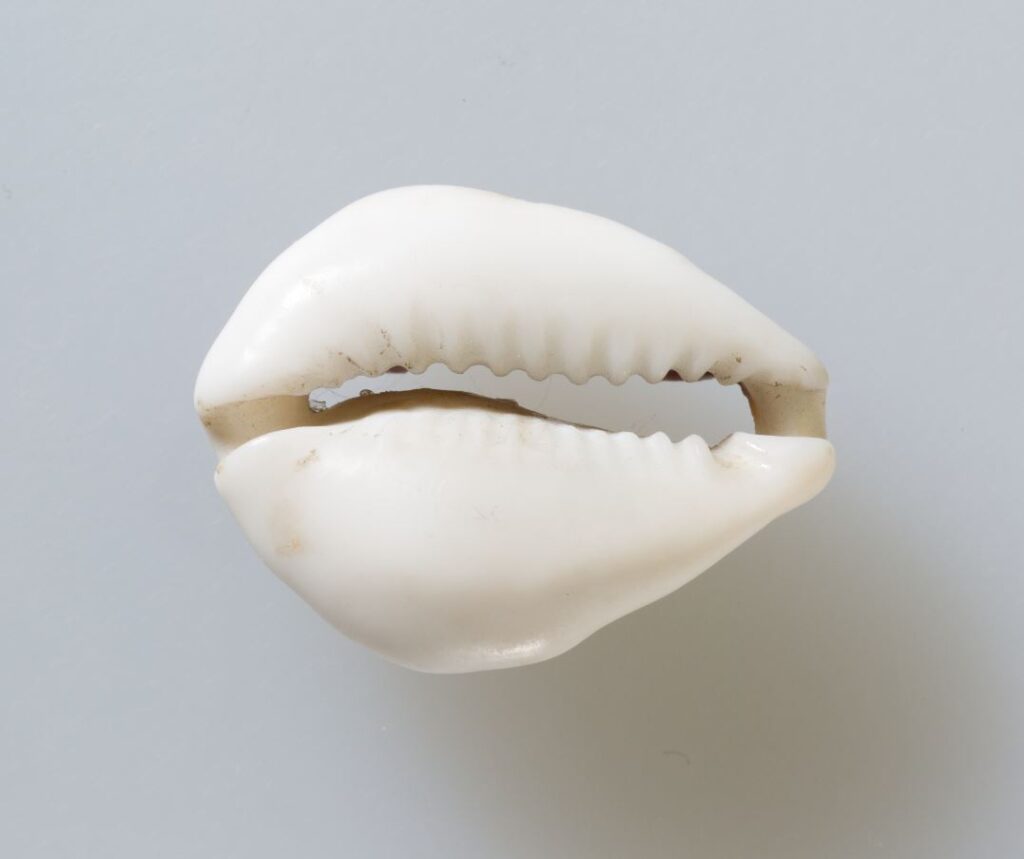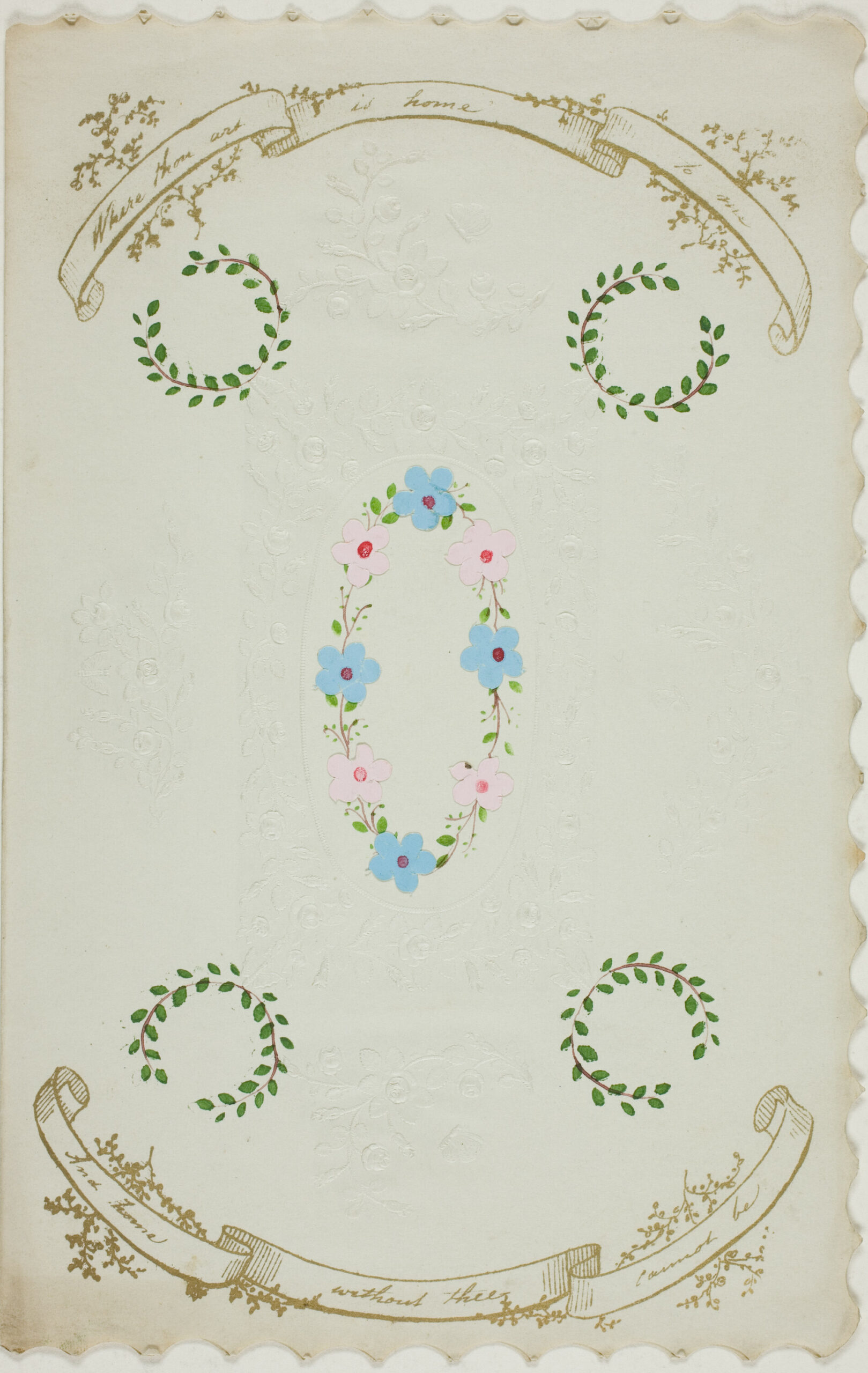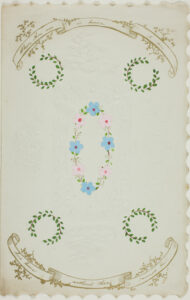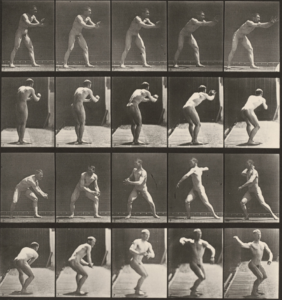Take Good Care
Melanie Pierce
Every woman in this waiting room is either pregnant or lugging an infant clipped into a car seat, besides my mother and me.
My mother: forty-six years old. Seven years since last childbirth; menstruation irregular. Fertility expectations: low.
Me: twenty-one years old. Virgin. In the event of Apocalypse, society could use my highly regular menstrual cycle as a new calendar. Fertility expectations: recently the recipient of Baby’s First Bible at her bridal shower.
None of the waiting room babies are crying, but their suckles and gurgles and spittles are loud. I know how even the soft sounds an infant makes can grate on the ears; I’m fourteen years older than my youngest sibling. I changed my brother’s diapers when my mother was out on errands, listened to him “cry it out” in his crib, rocked him through the night once when our family had the flu.
Do other girls bring their mothers to their first gynecologist appointment? I don’t see any other mother-daughter sets here. But the good girls do. The girls for whom sexual intercourse is a matter of gendered custom, part of becoming the husband-pleasing wives God created them to be.
Sex, so far, seems like any other tradition or wisdom my mother has passed down to me. Like Grandma Goldie’s turkey dressing recipe, or how to keep a vegetable garden alive in the Oklahoma summers. No doggy style because that’s how animals do it, set up the porn accountability software on your husband’s computer yourself and don’t give him the password, be fruitful and multiply.
A baby leaves the perimeter of the pink blanket unfurled at her mother’s feet, crawls to me, and looks up. Her butt, thick with diaper, bounces up and down, her thighs unaccustomed to such effort. She sneezes on my shoe.
My mother leans over, stomach grazing her knees, to coo. “What a cute little girl!”
Droplets of snot glisten against the black of my ballet slipper. I rub my shoe against the back of my jeans.
A few months ago, my mother gifted me The Contraception Guidebook: Options, Risks, and Answers for Christian Couples. I didn’t read it. If birth control turns out to be a sin on par with abortion, and God, at the pearly gates, is the first to tell me this directly, I can claim ignorance. “Gee, Lord, I didn’t know.” My strategy is ridiculous. God can hear my thoughts. He knows my innermost desires, including the wish to not have a baby for, like, ten years.
Thus far in my life, Evangelicalism has provided specific directives about right and wrong, but married couples’ use of birth control is, apparently, a matter of personal conscience. Even my church appointed pre-marriage counselor, a soft-spoken woman who has been married for almost thirty years and raised three adult children that radiate godliness from between the strands of their straight shiny hair and the pleats of their starched khakis, says it’s between me, my husband, and the Lord. She asks me: what do you think?
Me: I don’t want to become a mother right now, with my graduate student husband-to-be, not at my young age, but I worry about how to prevent pregnancy in a non-sinful manner.
My fiancé: Is okay with me using whatever birth control, so long as I use it, so long as my reproductive system doesn’t impact his burgeoning career in academia.
The Lord: ???
What I tell my counselor: My fiancé wants to be sure he can provide for our family before we make one. She nods and smiles. It’s not a lie, merely a retelling of the truth in Christian lingo. I’m an English major at a Christian college––I’m good at Christian lingo. My fiancé says he’ll want children one day, and I assume that, as I mature into a woman of stronger faith, my biological instinct to nurture children will kick in. I’m also hoping that spiritual journey will take, like, ten years.
The baby sits, plop, on the carpet, and watches me, sucking the back of her fist.
The brochures on the table next to me are all about Baby. Breastfeeding Baby. Vaccinating Baby. The 1-800 number to call if you need to talk to a professional about the stress of Parenting Baby.
“Mom,” I whisper so the Babies can’t hear. “Are you sure this is an OB/GYN, not just an OB?”
“What?” she asks. “Why are we whispering?”
“Everyone here has a baby. No one is here for . . . the other thing.”
She smiles. “The other thing leads to a baby, honey. First stop: GYN. Then: OB.”
I asked my mother yesterday, when we were in the car on the way to church to meet with the wedding planner: Do you think using birth control is wrong?
Before my mother had me, her oldest child, and then became a full-time homeschooling mom to three kids, she worked as a registered nurse, and she has opinions on every healthcare related matter. She still reads medical journals that, in winter, come out of our mailbox cool to the touch, and smell of melted plastic in the summer. She is also the kind of mother who has an answer, one answer, delivered in a straightforward manner and clear voice, for everything. Short-sleeves not tank tops (modesty). Pads not tampons (toxic shock syndrome). Cheese sandwiches not peanut butter and jelly (more protein + calcium).
But to this question, my mother didn’t answer yes or no. “Life begins at conception.” That she said with conviction. “When the sperm touches the egg and starts the process of fertilization, that’s when life begins.” She said her and my father’s conscience didn’t allow them to use the birth control pill, but health risks factored into their decision, too. “You have to worry about blood clots when you’re on those things.” She did hold a firm stance on IUDs—she told me an IUD is the equivalent of an abortion—a woman can still ovulate with an IUD. The egg can be fertilized, and at the end of the month, the IUD shuttles the egg out of the uterus, fertilized or no. “You don’t want something that long-term, anyway. His master’s degree is only two years.”
She also said condoms are nice because there is no mess (nose wrinkle) to clean up afterward.
When the woman in pink scrubs calls my name, my mother says, “Have fun!” She grins and waves me off to the GYN, a quick stopover on the way to my God-ordained future.
The woman in pink scrubs instructs: Everything off, including your bra and panties. The gown opens in front.
It is cold in the exam room, but I still sweat, the paper of my hospital gown sticking to the nervous perspiration in my armpits and between my breasts. When I sit on the table, the paper rips beneath my butt. There are two cat posters taped to the ceiling. One has images of twenty-four cat breeds, each one labeled.
If the sperm doesn’t reach the egg because it hits a latex barrier, God can’t decide whether the egg should be fertilized either. How do condoms give God enough freedom to family plan?
One of my best friends from church, Sarah, told me a secret after she became an aunt for the first time: her older sister, Jessica, and Jessica’s new husband had wanted to wait to have children. But they decided “natural” birth control was the only godly option. They tracked Jessica’s cycle. She was pregnant within two months.
Another couple at church, Irene and Chris Klem, are in their late thirties and do not have children. They tried, but they couldn’t. Irene is an accountant. She attends services in the same outfits I assume she wears to work: button-up blouses, A-line dresses that fit close to her frame, pantsuits on Wednesday nights.
I understand that Irene grieves not having a child, but I envy her tailored outfits.
The pill works by tricking my body into thinking it’s pregnant so it doesn’t ovulate. No fertilized eggs. A trick is not an abortion.
I think on this last part extra hard so God can hear.
The other cat poster on the exam room ceiling says, “Hang in there!” with a grey kitten swinging from a limbo pole. Are they trying to be funny, taping that poster up there, where patients can look at it as the doctor jams the whatevers up their wherevers?
Christian marriage is, apparently, a real minefield of matters of personal conscience. Another such matter: if sex between a husband and wife is for pleasure/intimacy or for reproduction or both. I’ve fallen into the for pleasure and intimacy camp—the edgy take, the view that my more progressive believing peers at college hold as well. My suitemate, Maggie, practices making out with her pillow during Braveheart. My roommate, Courtney, brags how much her future husband will treasure her DDD boobs. Once, we fastened a bra of hers on me, over my clothes, and stuffed two scarves inside each cup to fill the difference between my breasts and hers.
Last week, I went into a lingerie store. My sister and two of my other bridesmaids were at the mall with me, but when I made for the entrance to Frederick’s of Hollywood, they erupted into giggles, so simultaneously it felt choreographed, and scurried away to Claire’s. As I ran my fingertips over the cream-colored negligees, the pink lace bralettes, I noticed the two other women shoppers, in cheetah-print leggings and patent leather high heels. They looked at me, then exchanged glances with each other. Stacks of black lingerie draped over their arms, they laughed.
When I went to check out—one negligee trimmed in lace, the satin dark purple and the lace black—and what could be more risqué than black lace—the cashier asked: Do you have your something blue yet? I was distracted by the nipple clamps and pasties in the display case, so she had to repeat herself. She pointed to a pair of white panties next to the cash register. There was a tiny blue bow on the waistband, the word bride bedazzled across the butt. I rubbed my forehead, so hard the pads of my fingers were sheened with oil when I pulled them away, but the word virgin was not, in fact, printed on my forehead. I stuttered, “How-how did you know I’m a bride?”
She said, “Umm, your engagement ring?”
I bought the panties.
I’m already pushing the boundaries I grew up with in terms of my future sex life. If it turns out that my conscience is dead wrong, what does it matter if I add birth control to the mix?
There is a knock on the exam room door, and the person who comes through garbed in a white coat is a woman, as I requested. She has curly hair and big eyes and her body looks like it must be enveloped in small decorative pillows. She probably gives good hugs. “I’m Dr. Shelley.”
I can hear the cheetah-legged women giggling when I tell her why I’m here. “I’m getting married. This is my first gynecological exam.” I say gynecological slowly, make sure my tongue doesn’t trip over the syllables.
“Okay,” she says, her back to me as she fiddles at the counter. “Thank you for telling me, I will be extra generous with the lube.”
At first, I’m confused because my one experience with lube is my engaged college friend Elizabeth advising, “Stock up on lube before the honeymoon. Water-based. No flavors. You should get, like, a lot.” She hasn’t had sex yet, so I don’t know who her sources are. Then I realize what Dr. Shelley is lubing up.
Surprisingly, inserting my feet in the stirrups will be the most uncomfortable part: sliding my butt to the edge of the table, peeling my inner thighs apart, trying to relax as my legs fall open wider than my pelvis, the stirrups against my Achilles’ heels. When the speculum slides in, it stretches me only as much as my pediatrician’s otoscope would open my ear canal. The swab—the long thin stick that looks like the matches my mom keeps on top of the fridge, out of my little brother’s reach—pokes, but because it’s a part of my body that’s never been touched before, it seems far away, alien. Like the poke is happening to someone else.
When Dr. Shelley is done, she says, “We’ll call you with the results, but I’m sure everything will be fine.”
I open my mouth, but Dr. Shelly speaks before I can figure out what it is I want to say. “Have you had sex before?” she asks. “Or are you waiting until you’re married?” She peels off her blue latex gloves, first one, then the other.
“Waiting,” I say.
She nods. “Do you plan to use birth control?”
I swallow, and to me it sounds like the contraction of my throat reverberates against the walls.
When my mother found out she was pregnant with my brother, her bedroom door was shut tight for a week. My sister and I could hear her crying.
Years before, I’d asked her why our family had two children while my friends at church had between four and nine siblings. She’d replied, “We always wanted more children, but God saw fit to give us two.” She had been okay with it. After my sister and I graduated from high school, the job that God gave her would be done, and she could go back to nursing.
Maybe a year after my brother was born, I was vacuuming my parents’ room when I found a condom wrapper. Ripped open, contents missing. Underneath my mother’s dresser.
I wonder what my mother’s opinion on birth control was before her third pregnancy, if it shifted once God’s will for her intruded on her own.
Here is what I haven’t told my pre-marriage counselor: At night, in the dark of my dorm room, I admit to myself that I might not ever want a baby. It seems so risky. Not the childbirth part––the part where I begin to resent the baby for trapping me at home, in my God-appointed place. When there are no children in the home, the wife’s work life seems to be another matter of personal conscience. I crave that flexibility. I don’t know what I want my childless adult life to look like, but I want the chance to audition options. Grad school? Publishing? Dinners out in snugly fit dresses with the law firm partners? A baby would be an eighteen-year answer to the question of what I have to do.
When I don’t answer Dr. Shelley, she offers, “I can write you a prescription for a low-dose birth control pill. One that won’t have many side effects.” After another moment of silence, she prompts, “Do you have any questions I can answer?”
What if I forget to take the pill?
What if I accidentally take two pills in one day—if there’s somehow a baby bee-bopping around in there, will two pills in one day sweep it out?
What does it feel like when a baby falls out of you? Can you feel it, or do you just look down into the toilet water to find a floating blob of tiny fingers and toes and feelings and heartbeat?
When you lifted my gown, did my pubes shock you? My mother says men don’t care about that, but her polling sample size is one man.
What I ask is: nothing.
“Do you want a prescription?” Dr. Shelley asks.
I nod, and then I say it, because verbal assertion seems important. “Yes.”
She scribbles and hands me a piece of paper, and I almost shake her hand because it feels polite to physically acknowledge the first person who’s lubed up her fingers for the benefit of my vagina.
She pauses and looks at me, with the same intensity I’m guessing she used to scope out my cervix. She says, “Take it slow, okay?” Her vocal rhythm, until now, has been snipped and pressed, the talk of a person who has lots of other people to talk to. Now her words stretch like fleece, elongated into pillows I could trust fall into.
“The first time hurts; there’s no need to rush. Communicate with your fiancé. Give him directions. Tell him what you need him to do.” And then she strides toward the door, talks over her shoulder. “Take good care.”
In a few minutes, once I’m dressed, I will go out to my mother in the waiting room, worried she will take issue with me filling the prescription while I’m on my parents’ health insurance. Perhaps they will refuse to make any financial contribution, however distant, to a birth control method they view as a morally grey area. When I show my mother the prescription slip, though, she will tell me that she respects my decision, with a crease of worry splitting her forehead.
My first cycle after the wedding, my period will start six days late. I will tell my new husband, and all the jokes I’ve heard whispered among my mother and her friends about men being babies will no longer seem exaggerated. The next time my period is late, I will take the pregnancy test in a public restroom. Although it is negative, I’ll cocoon it in toilet paper before I throw it away.
At my ninth gynecological exam, when I am twenty-nine, childless by choice, and newly divorced, I will get an IUD. Three days later, I will experience intense cramping. The IUD will have migrated to the top of my uterus, and the doctor performing my sonogram will warn that the IUD has possibly attached to my uterine lining, that an emergency surgery is the safest removal method. I will no longer believe in the Christian faith, but in this moment, I will be certain God is punishing me. Or perhaps he’s sparing my soul from the black marks the technical abortions of the IUD would have left, one last flex of paternal authority. I will have gotten somewhat better at vocalizing my needs in healthcare appointments and will tell my doctor, “I’m moving halfway across the country in two weeks––it’s a really bad time for surgery.” She will tug lightly on the IUD strings, and it will come out smoothly, no surgery required.
I will get the implant in my arm next, which will give me two-week-long periods and hormonal acne. It will have to come out, too.
The first time I meet my new partner JES’s father, Mark, I will be back on the pill. Mark makes his own calcium supplements by crushing up eggshells and uses terms like PUFA (that is: polyunsaturated fatty acids) in regular conversation, and he will expound on the dangers of hormonal birth control, the negative ways it can affect the body. My first instinct will be to reply that it’s not a topic I want to discuss with my partner’s father, thank you very much. The next day, when Mark sees me eating an apple fritter, he will lecture me with the same fervent horror. I’ll realize the subtext of his comments: he wants what is best for my body. To him, birth control is a matter of my health rather than an issue of Christian living. He will be the first parental figure in my life to suggest such a thing: that my body has intrinsic value, for reasons other than its usefulness to God.
I will tell Mark I’m happy to be on the pill and not feel guilty stating what I want because here’s the thing: This is my body; it is my choice. Thirteen years after my first GYN appointment, I will still hesitate before I make those statements, but I will make them. I will say them out loud.
If I do ever go off the pill, though, I will be comfortable managing the associated risk. As a woman who was raised to seek the security of God’s plan for her, I will be astounded by how comfortable I become with risk.
But right now, at twenty-one, this is my first step toward taking ownership of my body, of the trajectory of my life––things that feel radical to want. I sit on the exam table in the room with the cat posters and hold my prescription for the pill. I’m shaking, I’m sweating, but I’m grinning.
When I get up to put my clothes on, I set the prescription carefully on the table, in a spot where it won’t blow away with the breeze of my hurried dressing.
How long do they give you to get dressed before they come back in?









